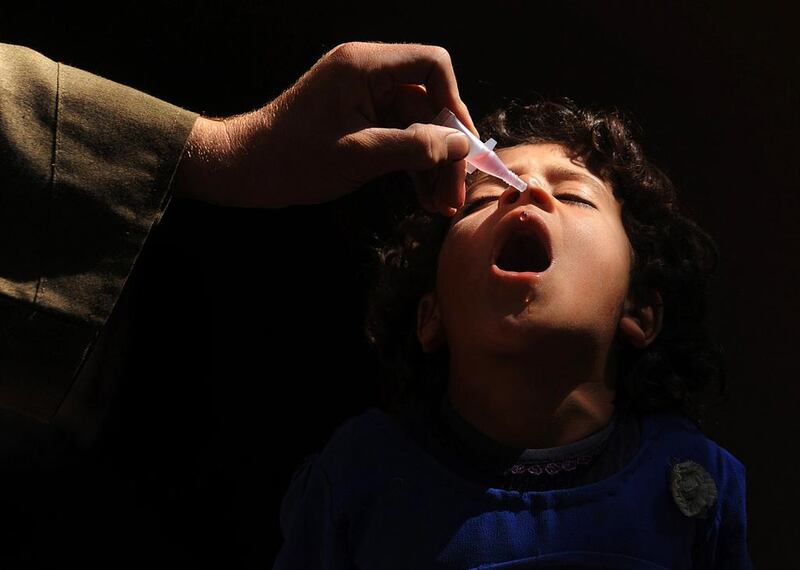Today, Abu Dhabi hosted one of the most important events of 2017 for those concerned with global progress, and especially the eradication of infectious diseases that take a disproportionate toll on the world's poorest. It's exciting to see so many key figures descending on the UAE's capital, but more important than that, the day was about concrete actions to improve the lives of millions of people. A $100m fund to tackle river blindness and lymphatic filariasis, and a new policy institute both assert Abu Dhabi's leading role in global health.
Hot on the heels of last weekend's opening of Louvre Abu Dhabi, the UAE's capital again played host to world leaders, this time for the Reaching the Last Mile Forum in Abu Dhabi Global Market. At the forum, which was under the patronage of Sheikh Mohammed bin Zayed, Crown Prince of Abu Dhabi and Deputy Supreme Commander of the UAE Armed Forces, and the Gates Foundation, set up by Bill and Melinda Gates, were Dr Tedros Adhanom Ghebreyesus, director general of the World Health Organisation, Jim Kim, president of the World Bank and a large number of heads of state and ministers from around the world.
All of the diseases in focus are terrible blights on the lives of hundreds of millions of people, mainly those living in the world's poorest communities. From polio, which causes lifelong paralysis, to malaria, which is still one of the biggest killers of children aged under five, to neglected diseases such as river blindness, guinea-worm and lymphatic filariasis, these are diseases that disproportionately affect the poor. Many people in high income countries are unlikely to have even heard of them, let alone suffer from them. That's why fighting these diseases is a moral obligation for those who want a fairer world.
Thankfully, the diseases in question have something else in common. They can all be eradicated in our lifetimes. We have the tools, the money and the ingenuity to get rid of all of them. We’ve made huge progress on every one of them in the last 20 years, with both polio and guinea-worm now on the verge of eradication, and big reductions in malaria and the other tropical diseases. The only remaining question is whether we have the determination to finish the job.
That is why the event was called Reaching the Last Mile. In the journey to eradicate a disease, the last mile is the hardest, because the last remaining cases of a disease will always be in the hardest to reach places, whether they suffer from violence and instability, or simply a lack of health service provision. What’s more, it is hard to get the world’s attention to the importance of ending diseases in the last mile, because when a disease only exists in a few places, most people have forgotten about it. Their children are no longer affected, and they have other concerns to worry about. That means the last mile is often the hardest time to secure the financing needed to finish the job. But the last mile is also the most important, because if there is a single remaining case of infection, the risk remains that the disease will spread back into the general population, and all of the hard work to eradicate it will be undone. This has happened in the past already, with the resurgence of malaria from the 1990s to early 2000s. We can’t let it happen again.
_______________________
Read more from Opinion
[ ISIL 2.0: a guerrilla group in full insurgency mode ]
[ Lebanon must not get caught in the crossfire between Hizbollah and its critics ]
______________________
Concrete action was taken in Abu Dhabi to make sure that this time, we leave no one behind. In particular, two announcements highlight the leading role that the UAE is increasingly playing in this global fight for a fairer and healthier world.
Firstly, the Reaching the Last Mile Fund was launched, which will raise up to $100 million to fight river blindness and lymphatic filariasis in the Middle East and Africa. Housed within the END Fund, an established international centre of excellence, and coordinating closely with the World Health Organisation, the fund will rapidly increase progress towards elimination of river blindness, while also supporting the treatment of lymphatic filariasis. To kickstart the fund, Sheikh Mohammed made a contribution of $20 million. Our foundation will provide a further 20 per cent of the total. The launch of the fund was also, therefore, a call to action for other leaders to come forward and join our efforts reach to reach the last mile.
Secondly, Bill Gates and Sheikh Mohammed jointly announced the start of work to design and create a new organisation based in Abu Dhabi – a policy institute focused on elimination of infectious diseases. The new organisation will establish a range of partnerships with world leading international institutions, allowing Abu Dhabi to play an ever bigger role in addressing health challenges across its wider region: the Middle East, South Asia, the Horn of Africa and beyond.
Sheikh Mohammed has for a long time dedicated much needed resources to fight polio, malaria, guinea-worm and other diseases. Bill Gates has been honoured to partner with the Crown Prince on the issue of polio. To fight that disease, they have both put on the table not only money, but also their expertise, relationships and influence. Without Sheikh Mohammed’s help, polio would not now be so close to the historic moment of eradication.
These announcements build on that history of collaboration to open a new chapter in these efforts. The new fund to eliminate river blindness and lymphatic filariasis, and the policy institute in Abu Dhabi focused on infectious diseases, will both play critical roles in the coming years to ensure we finally reach the last mile for diseases that have plagued society for centuries.
Hassan Damluji is head of Middle East relations at the Bill and Melinda Gates Foundation





